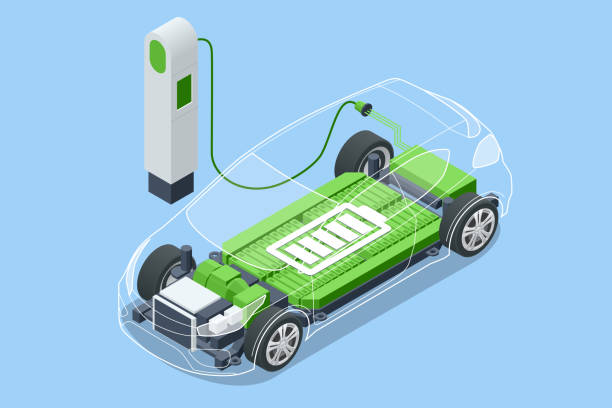The evolution of two-wheeler vehicles has seen a significant transformation with the integration of lithium-ion batteries. These batteries have emerged as a beacon of innovation, revolutionizing the performance, efficiency, and sustainability of electric motorcycles and scooters.
A Brief History of Lithium-ion Batteries
Lithium-ion batteries aren’t a recent phenomenon; their history traces back to the 1970s when researchers explored various materials to develop rechargeable batteries. It was in the 1990s that commercialization began, and their adoption surged, especially in portable electronics. However, it’s in the last decade that their prominence in the automotive industry, particularly in electric vehicles, has skyrocketed.
Advantages of Lithium-ion Batteries in Two-Wheelers
1. Energy Density and Range:
Lithium-ion batteries boast higher energy density compared to conventional lead-acid batteries. This translates to increased range for electric motorcycles and scooters, providing riders with extended travel distances on a single charge.
2. Lightweight and Performance:
The lightweight nature of lithium-ion batteries contributes to better handling and performance of two-wheeler vehicles. This enhances maneuverability and agility without compromising on power.
3. Fast Charging:
One of the most notable advantages is the rapid charging capability. Lithium-ion batteries can be charged at a much faster rate compared to other battery types, reducing downtime and allowing for more frequent use.
4. Longevity:
When maintained properly, lithium-ion batteries exhibit a longer lifespan compared to traditional batteries. Proper care can extend their life, making them a durable and cost-effective choice for two-wheeler owners.
5. Low Maintenance:
These batteries require minimal maintenance, eliminating the need for regular fluid checks or specific upkeep common in conventional batteries. However, basic care practices can further enhance their performance and longevity.
Maintenance Tips for Two-Wheeler Lithium-ion Batteries
1. Charging Habits:
Maintain a regular charging routine. Avoid letting the battery drain completely; instead, aim for partial charging cycles. Lithium-ion batteries prefer staying within a specific charge range for optimal performance.
2. Temperature Control:
Extreme temperatures can affect battery performance. Avoid exposing the battery to excessively high or low temperatures. If possible, park the vehicle in shaded areas to prevent overheating.
3. Proper Storage:
During periods of non-use, store the two-wheeler in a cool, dry place with around 50% charge. Long-term storage with a fully charged or completely depleted battery can degrade its health.
4. Use Correct Chargers:
Ensure you’re using the appropriate charger provided by the manufacturer. Using incompatible chargers can damage the battery and affect its longevity.
5. Regular Inspections:
Periodically inspect the battery for any physical damage or leaks. Additionally, keep the terminals clean and free from corrosion.
Embracing the Lithium-ion Era in Two-Wheeler Mobility
The integration of lithium-ion batteries in two-wheeler vehicles marks a pivotal moment in the transportation industry. Their numerous advantages, ranging from higher energy density and improved performance to longer lifespan and low maintenance, have propelled the electric mobility revolution.
Adopting proper maintenance practices can further enhance the longevity and efficiency of lithium-ion batteries, ensuring a seamless and sustainable riding experience for two-wheeler enthusiasts. As technology continues to advance, these batteries will undoubtedly play a crucial role in shaping the future of clean and efficient transportation.
The Eco-Friendly Shift: Environmental Impact of Lithium-ion Batteries
The rise of lithium-ion batteries has significantly contributed to reducing the carbon footprint in the transportation sector. Their adoption of two-wheeler vehicles aligns with global efforts to combat air pollution and minimize reliance on fossil fuels. Unlike traditional combustion engines, lithium-ion batteries power electric vehicles without emitting harmful gases, making them an eco-friendly alternative.
Economic Viability and Market Trends
Cost Efficiency
As technology advances and production scales up, the cost of lithium-ion batteries continues to decrease. This cost reduction makes electric two-wheelers more economically viable for consumers, promoting a gradual shift from traditional internal combustion engine vehicles to electric ones.
Growing Market Penetration
The market penetration of electric two-wheelers, driven by lithium-ion batteries, is steadily rising globally. Government incentives, increased consumer awareness about environmental concerns, and improvements in infrastructure, such as charging stations, contribute to this upward trend.
Conclusion:
The integration of lithium-ion batteries in two-wheeler vehicles heralds a new era of sustainable and efficient transportation. Despite concerns about environmental impact and resource sustainability, the benefits of these batteries in reducing emissions, improving performance, and driving innovation are undeniable.
As technology evolves and research continues, the future of two-wheeler mobility powered by lithium-ion batteries looks promising. Embracing sustainable practices, investing in recycling infrastructure, and advancing battery technology will play key roles in ensuring a greener and more efficient transportation landscape.

